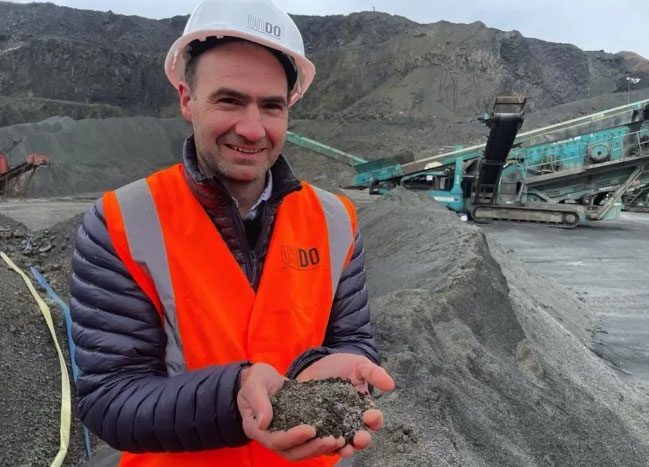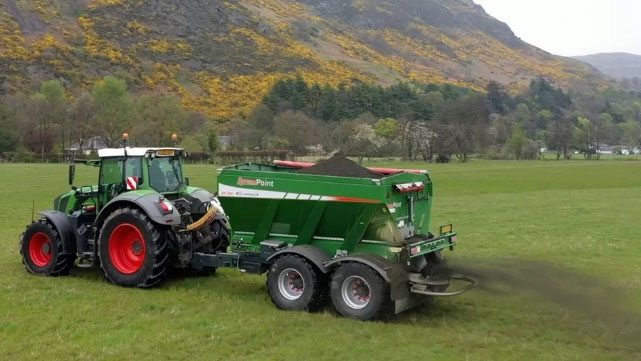At a quarry in Scotland, amid the noise of heavy machinery, Jim Mann bends down to scoop up a handful of small black rock fragments.
“This is my magic dust,” he says, gently rubbing it between his fingers. In Jim Mann’s hands are pieces of basalt— a hard volcanic rock that is neither rare nor particularly remarkable. However, through a process known as “enhanced weathering,” basalt can help cool our warming planet.

Jim Mann calls these basalt fragments “magic dust.” (Photo: BBC).
The BBC reports that scientists from the United Nations believe that merely reducing greenhouse gas emissions will not suffice to prevent dangerous global warming. They estimate that it will be necessary to remove carbon dioxide from the atmosphere. Planting trees is the most natural way to do this, but it has its limitations. The captured CO2 will be released when the wood decays or burns, and there are limits to how much land can be used for planting trees.
Meanwhile, Direct Air Capture (DAC) uses large machinery to mechanically suck CO2 out of the atmosphere and store it underground, which is considered permanent. However, there are still questions about the viability of this method, as it requires a high energy process while we are trying to eliminate fossil fuels.
The BBC explains that the “enhanced weathering” method lies between natural and artificial. It utilizes the natural weathering process, slowly combined with a boosting system to remove carbon more quickly.
Jim’s enhanced weathering company, UNDO, has received a new investment of £12 million.
Jim’s company values the small basalt pieces. Over millennia, volcanic rock has gradually removed carbon from the air as it weathers in rainwater.
However, to maximize carbon removal, basalt needs to be spread over a large area. This has led local farmers to participate in helping the planet, in exchange for free fertilizer. Trials of spreading basalt on fields have shown it can improve both crop yields and grazing quality.
A local farmer named John Logan has observed UNDO’s trials at a neighboring farm and noted: “It seems to make the grass better, which is good for livestock because they eat higher quality grass.”

Small basalt rocks spread on fields in England. (Photo: BBC).
Some experts worry that carbon removal techniques might cause people to neglect the more urgent priority of reducing emissions and could even be used as an excuse to continue living carbon-heavy lifestyles.
But Jim emphasizes: “Reducing CO2 must come first.” He stresses the need to develop this technology to remove CO2 on a large scale, and the advantage of enhanced weathering is that it is “long-lasting.”
UNDO scientists calculate that it takes 4 tons of basalt to sequester one ton of CO2. With the typical CO2 emissions of a British person estimated at around 7 tons per year, this means each Briton needs about 30 tons—equivalent to one and a half truckloads of basalt spread annually to absorb their emitted CO2.
UNDO plans to scale up rapidly in the coming years and has attracted serious backing. Microsoft has agreed to fund 25,000 tons of basalt to be spread on fields in England.
This year, UNDO expects to spread 185,000 tons of basalt and hopes to remove one million tons of CO2 by 2025. However, this is seen as just a “drop in the ocean” compared to total emissions. The BBC reports that in 2022, the world emitted approximately 37 billion tons of CO2 into the atmosphere.
According to a recent forecast by the World Meteorological Organization, global temperatures are on track to exceed a 1.5°C rise within the next five years. The world has warmed by about 1.1°C, leading to increased heatwaves in Asia, droughts in Europe, and flooding in Pakistan.


















































